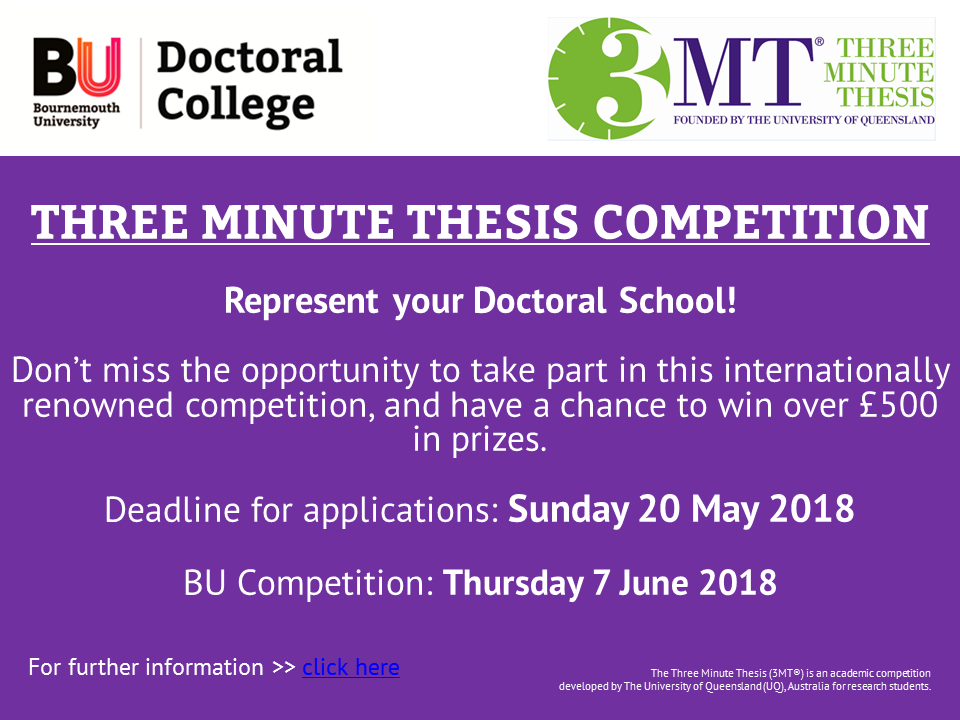
Call for Applications – Three Minute Thesis Competition

Latest research and knowledge exchange news at Bournemouth University

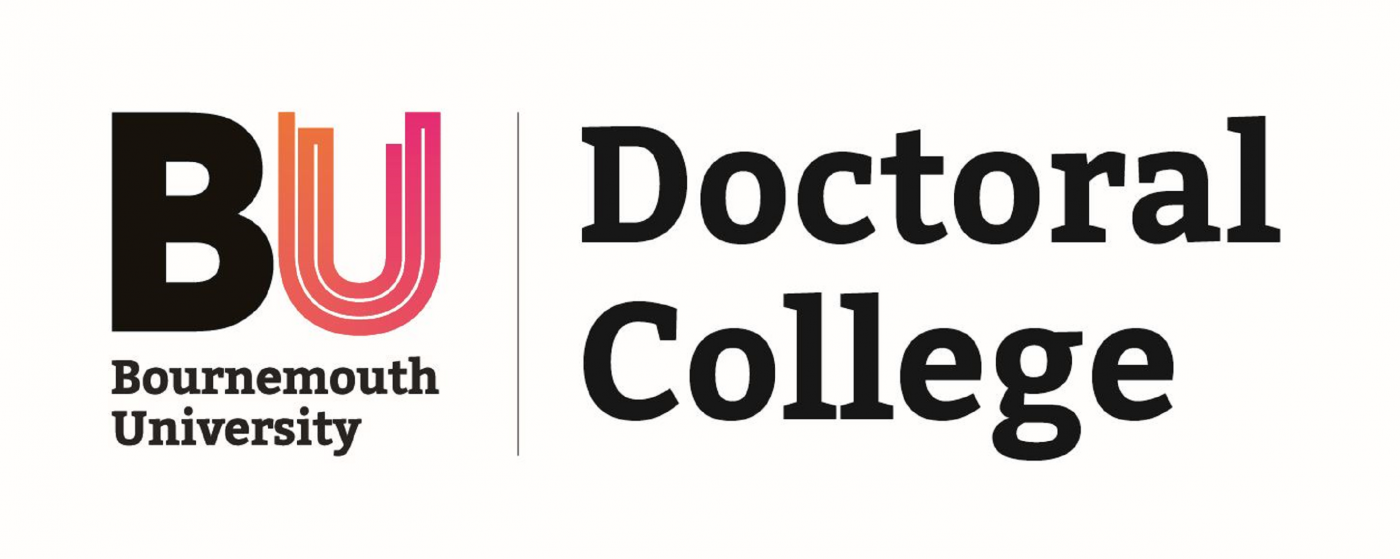
On Wednesday 7 March 2018 the Doctoral College hosted the 10th Annual Postgraduate Research Conference which brought together and recognised the excellence of BU’s postgraduate research.
Meet this year’s winners:
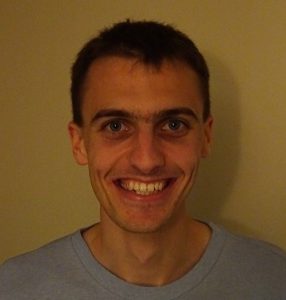 |
Mark Stevens, Faculty of Management
Research topic: A social identity approach to understanding physical activity. Why I chose this research topic: As a regular runner, and someone who engages in a lot of physical activity myself, I am a strong believer that being active should be a priority for us all. Having also seen first hand the issues being inactive can cause, and being aware of the scale of the inactivity crisis we are facing on a global scale, I am passionate about understanding the factors that influence people’s physical activity levels and devising effective ways of getting—and keeping—people more active. Example of how research at BU has changed things for me: My PhD has given me the opportunity to learn a wide variety of new skills and develop my existing skills in several areas. For example, working closely with my supervisors, collaborating with researchers around the world, and working to publish journal articles has helped me learn several advanced methods of statistical analysis and develop my academic writing. Quick quote: Following on the physical activity theme, but also a good thought about working hard: “Nobody ever drowned in their own sweat!” |
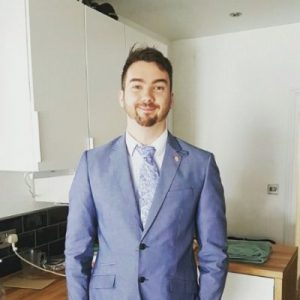 |
Stephen Allard, Faculty of Media & Communication
Research topic: When does Page become Stage: Exploring Evolving Poetic Practices in Digital Spaces. Why I chose this topic: The growth and popularity of social media sites, especially within the last decade, has arguably forever changed the way that we imagine, interact with, and relate to, each other. With increasing cynicism towards these new social worlds of words, with terms such as ‘fake news’ ingrained in the public consciousness, I am fascinated by how poets might add their voices to these new social frontiers. If a search for truth about online interaction is currently only revealing something increasingly seen as fake, then can perhaps poets, using something fictional, reveal new truths about ourselves, and each other, online? Example of how research at BU has changed things for me: Bournemouth University has a rich, diverse, and interactive postgraduate research community, that actually feels like a community. Through events, workshops, and talks, I have gained the opportunity to work with a range of talented and passionate researchers, working across many fields and in many disciplines. This has not only pushed the boundaries and possibilities of my own research, but also opened up new opportunities, and completely new ways of thinking about the postgraduate experience. Quick quote: Oscar Wilde: ‘Everything in moderation, including moderation’ |
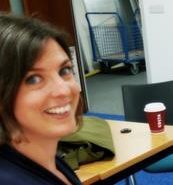 |
Louise Oliver, Faculty of Health & Social Sciences
Research topic: Family Narratives of Child-to-Parent Violence and Abuse: Lifting the Veil of Secrecy Why I chose this topic: I have worked within Children’s Social Care for over a decade, with a focus on working with family violence and abuse. As part of my practice, it became apparent that there was a dearth of research about children who are controlling, aggressive and/or violent towards their parents, as well as limited targeted support for families experiencing child-to-parent violence and abuse. This motivated me to study this form of family violence and abuse in order to further prevent, intervene and support families experiencing this. Example of how research at BU has changed things for me: This research has helped in many ways, it has helped develop my practice by improving my theoretical understanding of family violence and abuse, and I have been able to incorporate this within my practice. I am also in a position that I am able to offer advice and guidance to my colleagues. Quick quote: “…a moment of silence, a question without answer, provokes a breach without reconciliation where the world is forced to question itself” (Foucault 1967) |
| Amal Musa Almoualed, Faculty of Media & Communication
Research topic: Saudi Women Journalists—An Exploration of Their Role and Practice in an Age of National Transformation Why I chose this topic: The advancement, development and empowerment of women is a lifelong interest of mine, something I wish to study and achieve in my personal and professional life. This motivated me to approach my research from both sides—‘journalism’ and ‘women’—in order to combine my joint passions for journalism research and the advancement of women. Example of how research at BU has changed things for me: Being a researcher in Women and Journalism at Bournemouth University has developed my personal and professional skills and exposed me to other cultures. This has helped broaden my horizons and also helps me communicate more effectively with professionals and colleagues from different cultures. Quick quote: These are two of my own quotes, which I always recall whenever I need to encourage myself to continue pursuing my dreams: ‘Being a woman means to have patience, determination, enthusiasm and confidence as you challenge any barriers that limit your success in your personal and professional life.’ ‘Some women seek to be pretty and work hard to remain pretty their entire life; however, I believe my prettiness is determined by being mindful, ambitious, and successful in achieving my goals.’ |
|
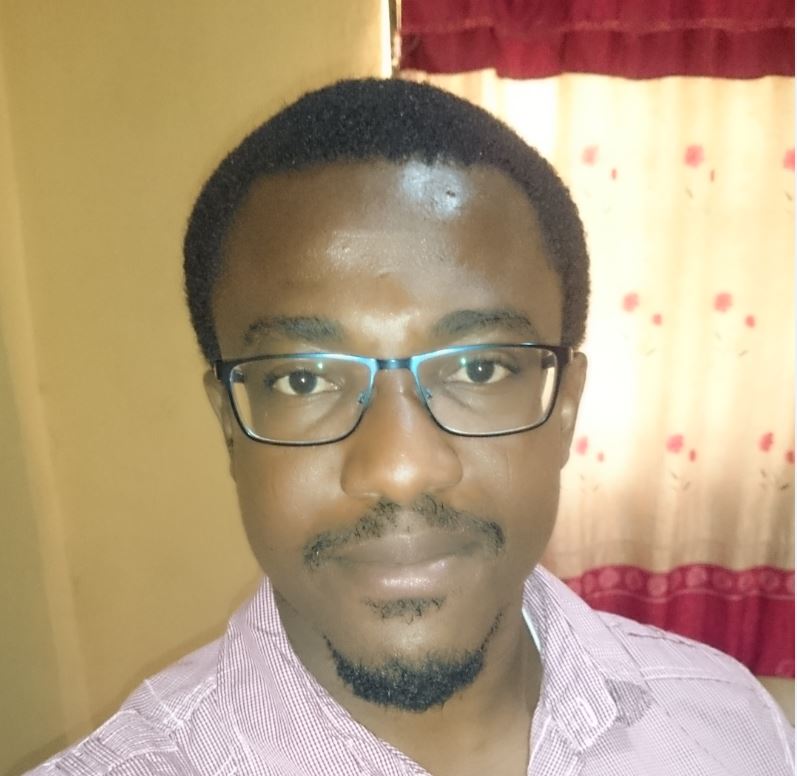 |
Ejike T. Ezeh, Faculty of Health & Social Sciences
Research topic: Shared decision-making: investigating the potential of an interactive, web-based information tool to support treatment choice of people with advanced pancreatic cancer Why I chose this topic: I have always been interested in the impact of information technology in healthcare, and when the opportunity became available, I applied and was selected. Also, being able to help people in making important decisions about their health is a rewarding experience for me. Example of how research at BU has changed things for me: Research has taught me that you have to be very thorough and systematic even in the most basic things in life. Someone may build on your work in the future. I am more careful in my utterances as well. There must be sufficient evidence to support them. Quick quote: When the going gets extremely tough, then you are close to a breakthrough. |
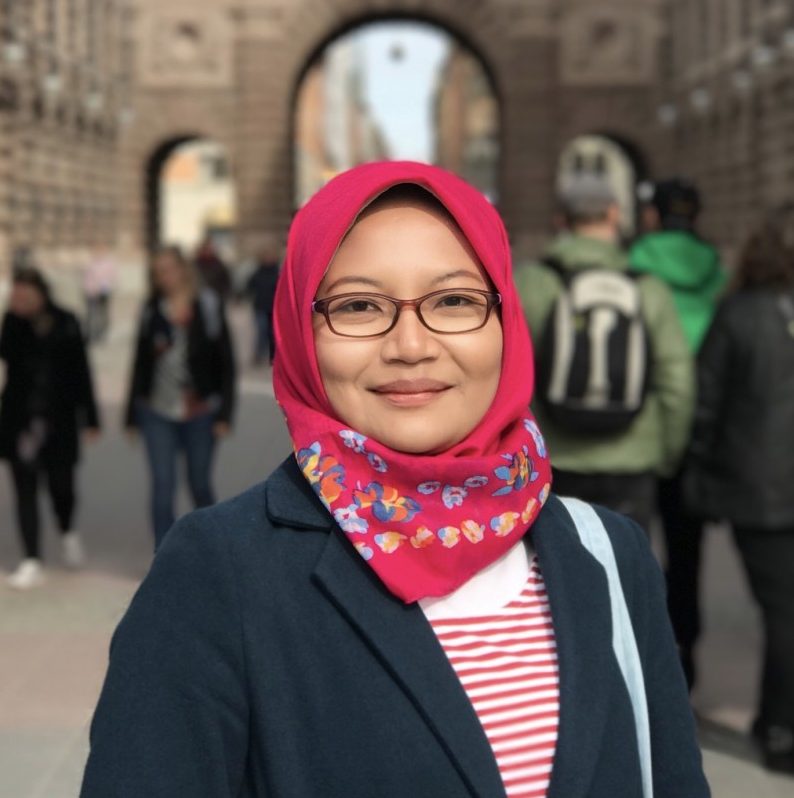 |
Nurist Surayya Ulfa, Faculty of Media & Communication
Research topic: I am undertaking a PhD on ‘the digital virtual consumption practices and commercial enculturation among Indonesian Muslim girls’. In particular, the work aims to account for how Indonesian Muslim girls’ engagement with DVC in Girls games shapes both their literacy of and desire for Western consumer culture and the role of Islam in the process. By doing this, enables me to shed light on the interplay between market and religion under the consumer culture theory traditions. Why I chose this topic: Since 2009, as an academia in Diponegoro University Indonesia, I have been interested in studying children and marketing communication themes in Indonesia. My PhD problematization derived from my previous finding on Muslim children engagements with local and global media practices. Example of how research at BU has changed things for me: Undertaking PhD in Bournemouth University is a journey that I have thoroughly enjoyed so far. The reliable and supportive supervisory team is obviously the best part of my PhD journey. By way of their guidance, I have learned a lot about my research area and had valuable opportunities to develop myself. |
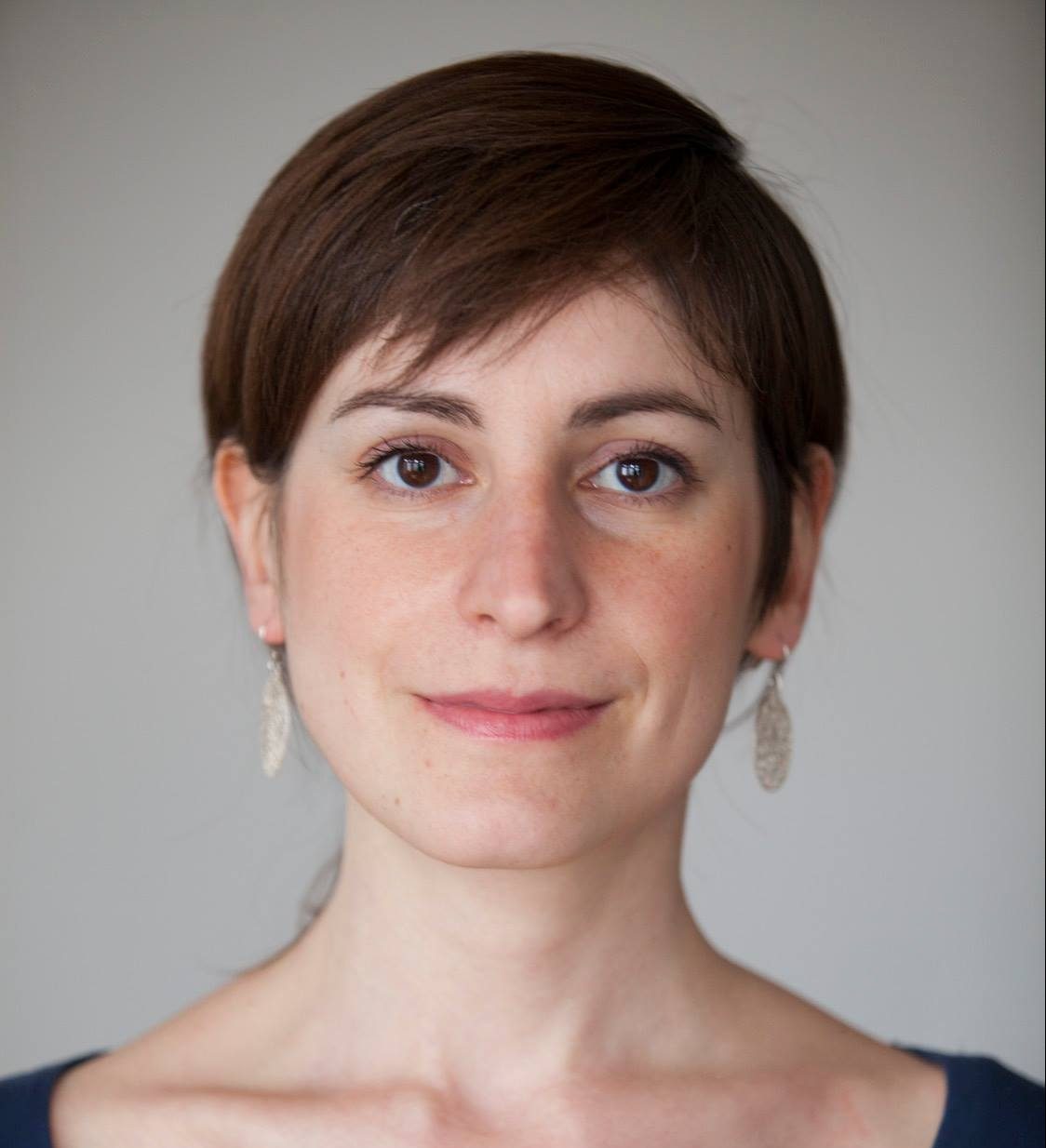 |
Giulia Levi, Faculty of Health & Social Sciences
Research topic: Between silence and agitation. Coping strategies and third-party interventions in divided societies: a comparison between post-conflict Bosnia and post-referendum UK. Why I chose this topic: The Brexit referendum has favoured the emergence of new lines of division in the British society. After years working in civil society organisations operating in divided contexts I have seen how initiatives to bridge societal divisions often apply standardised models overlooking the specificities of the contexts and of the people they work with. My project looks at how such initiatives are experienced by beneficiaries in order to develop a more socio-culturally sensitive approach. Example of how research at BU has changed things for me: Since I started my PhD I’ve had the chance to participate in workshops and conferences, meeting researchers I could discuss my ideas with. As part of my research I am exploring the cultural diversity of Dorset collaborating with civil society organizations on the ground that work on hate crime prevention and victims’ support. Quick quote: ‘Every culture is always on a nomadic path’ (M. Engelke) |
We report here on a successful programme of research, involving engagement with public policy, aimed at reducing the scourge of economic crime. If accepted the proposals made would have a substantial impact on frauds involving major companies, especially those in the financial services sector.
Economic crime takes many forms: from traditional manifestations of fraud, bribery, money-laundering and tax evasion to modern slavery and human-trafficking offences providing forced labour. Striking at the heart of global security, funding terrorism and political espionage, it also inflicts direct costs to businesses and economies, nationally and world-wide. Fraud alone is calculated to have cost the UK economy c. £190 billion (2017) while global estimates reveal a loss of £2.75 trillion (2013).
Focusing on corporate criminality, in March 2017, we responded to the Ministry of Justice Call for Evidence on Corporate Liability for Economic Crime. We argued that the current preference for corporate liability premised on the company’s failure to prevent criminal misconduct, as exemplified in the Bribery Act 2010, has little application in the context of widespread frauds emanating from “criminogenic” corporate cultures. Central to our proposals were a unique approach to attributing corporate dishonesty, through the adoption of a Criminal Practice Direction, and a shift of resources from regulation and compliance to investigation and prosecution of serious fraud.
In March and April 2018, we went on to publish our full results in a series of two articles in the Company Lawyer: New models of corporate criminality: the development and relative effectiveness of “failure to prevent” offences; and New models of corporate criminality: the problem of corporate fraud – prevention or cure? The General Editor of The Company Lawyer is Professor Barry Rider, Cambridge University, who was honoured in 2014 with the award of an OBE for services to the prevention of economic crime.
The research for these articles was wide-ranging with many questions that needed to be asked, from the definition of fraud itself and the scale of economic crime to the relative effectiveness of models that could be employed to tackle corporate fraud. Traditional “black letter” law research was useful for some aspects, for example, the analysis of the Bribery Act 2010 and its extension in the Criminal Finances Act 2017 in relation to offshore tax evasion. Other questions required substantial historical research, such as the law’s response to the particular problem of bribery and the precedents for the successful use of a “failure to prevent” model of criminality. The impact of reforms and potential reforms required a detailed analysis of recent prosecutions and the use of deferred prosecution agreements.
On Sunday 18th March 2018, the Independent reported Solicitor-General Robert Buckland MP as saying there is a “strong case” for a new corporate economic crime offence. We anticipate that our timely research will prove valuable in shaping the debate as to what the law should be and how it can be made to work.
Dr Stephen F Copp, Associate Professor, Law Department
Dr Alison Cronin, Senior Lecturer, Law Department
None of us can avoid meetings…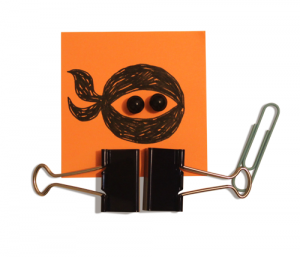
Then think how magnificent it would be if every single one was purposeful and powerful – sharing information, making decisions, identifying actions – but just without there being so many of them, or them taking so long!
In this session, we’ll use the 9 Characteristics of the Productivity Ninja™ to inspire change in your meeting skills, and you’ll identify specific ways your team can implement each of them, providing the opportunity to think about what makes effective, productive and fun meetings, and gives you the ideas and tools to make that happen.
Find out more and book your place now for the afternoon of Wednesday, 18th April 2018. This session, for BU Staff, will be at the Lansdowne Campus, with the location given in your booking confirmation.
Please also take a look at the external facilitator’s video, which introduces this workshop.
Find out about further events from the RKEDF and other Organisational Development workshops on the Staff Development & Engagement Events Calendar.
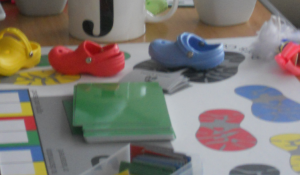 Today BMC Pregnancy & Childbirth published the latest paper by a PhD student at Bournemouth University. Our congratulations go to Alice Ladur in the Centre for Midwifery, Maternal & Perinatal Health (CMMPH), who published `Whose Shoes?’ Testing an educational board game with men of African descent living in the United Kingdom [1]. This paper is based on her PhD research and co-authored with her supervisors.
Today BMC Pregnancy & Childbirth published the latest paper by a PhD student at Bournemouth University. Our congratulations go to Alice Ladur in the Centre for Midwifery, Maternal & Perinatal Health (CMMPH), who published `Whose Shoes?’ Testing an educational board game with men of African descent living in the United Kingdom [1]. This paper is based on her PhD research and co-authored with her supervisors.
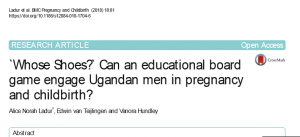 The paper addresses issues around men’s involvement in programmes or interventions aimed at the improvement of maternal health. One such innovative intervention is an educational board game which offers a unique approach to present health information where learning is reinforced through group discussions supporting peer-to-peer interactions. The authors would like to thank Gill Phillips for permission to use the Whose Shoes? board game and all participants for their participation in the PhD study.
The paper addresses issues around men’s involvement in programmes or interventions aimed at the improvement of maternal health. One such innovative intervention is an educational board game which offers a unique approach to present health information where learning is reinforced through group discussions supporting peer-to-peer interactions. The authors would like to thank Gill Phillips for permission to use the Whose Shoes? board game and all participants for their participation in the PhD study.
Alice PhD is focused on Uganda and this particular paper reports a qualitative study with men from Uganda who live in the UK on their views of an educational board game. This pilot study explored perceptions on whether a board game was relevant as a health promotional tool in maternal health prior to implementation in Uganda.

Reference:
Congratulations to Daisy Wiggins in the Centre for Midwifery, Maternal & Perinatal Health (CMMPH) on the publication of her paper ‘The effect of a birthplace decision support tool on women’s decision-making and information gathering behaviours during pregnancy: mybirthplace study protocol’. The paper is published in the Open Access journal Journal of Innovation in Health Informatics and can be accessed by clicking here! The paper is co-authored by CMMPH’s Prof. Vanora Hundley, Dr. Carol Wilkins, as well asProf. Carol Bond (University of Wolverhampton) and the Chief Executive of the Royal College of Midwives (RCM) Gill Walton.

Congratulations to all!
Prof. Edwin van Teijlingen
CMMPH
Reference:
Wiggins D, Hundley VA, Wilkins C, Bond C, Walton G. The effect of a birthplace decision support tool on women’s decision-making and information gathering behaviours during pregnancy: mybirthplace study protocol. J Innov Health Inform.2018;25(1):001–006.
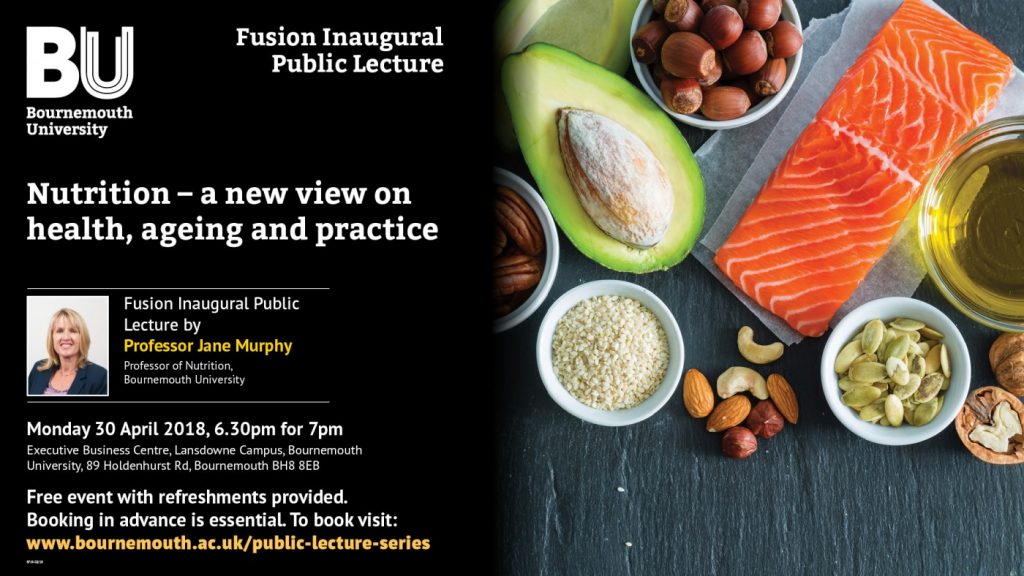
Our final inaugural lecture for this academic year will take place in the EBC on Monday 30 April and will be given by Professor Jane Murphy from the Faculty of Health & Social Sciences.
Good nutrition helps us to stay healthy and is a fundamental part of living a long, full and rewarding life. Food security, lifestyle and personal choices are some of the key factors that influence our ability to eat well and meet our nutritional needs. To help us navigate through these issues, we need the advice of qualified, experience and skilled nutrition professionals. But with some many conflicting messages about nutrition and health, how do we know what’s best and who to believe? Who should we trust to provide scientifically sound and effective nutritional advice?
Through her inaugural lecture, Professor Murphy will discuss the nutrition landscape in the UK and draw on her research journey to show recommendations around diet changes, particularly those linked to age-related conditions, have been underpinned by scientific evidence. Her lecture will discuss the challenges faced by nutritional professionals when translating knowledge into practice and the solutions she has used when developing new approaches to education and training in the wider health and social care workforce.
Jane Murphy is Professor of Nutrition, a Registered Nutritionist and Dietitian and co-leads the Ageing and Dementia Research Centre at Bournemouth University. Her research is committed to key nutritional problems faced by older people, especially the complex problems faced by people living with dementia and those living with and beyond cancer. At a national level, her ongoing work with Health Education England has provided evidence informed, high quality education and training to improve practice in dementia care across the health and social care workforce. Professor Murphy is committed to advancing the professional practice of nutritionists and is an elected Council member and Trustee for the UK Association for Nutrition and sits on a number of other national advisory boards including the Malnutrition Task Force with Age UK.
You can book your free tickets here.
For futher information on this event please contact research@bournemouth.ac.uk
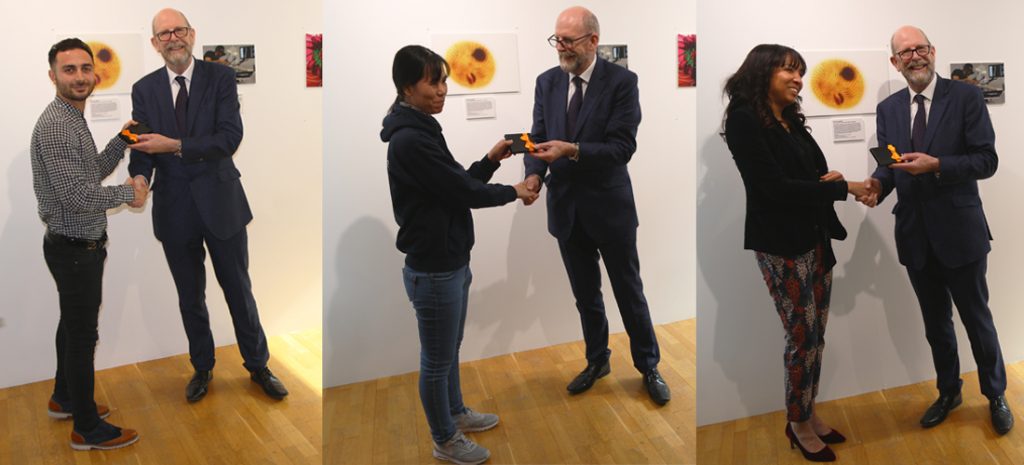
Sharing research through photography is a great opportunity to make often complex subjects much more accessible to all. This year over 1,500 people from all over the world voted in the competition, showing the power of images to engage and inspire. The research behind photos this year included areas such as archaeology, dementia and forensic science, among others.
The photography theme this year was people. The theme was open to interpretation, with photographers choosing to take an image of their research team, show people who might benefit or be affected by the research or even take a point of view shot. This year’s winners were announced in the Atrium Art Gallery on Tuesday 20 March, with prizes presented by Professor John Fletcher, Pro-Vice Chancellor of Research and Innovation. Details of the winners can be found below.
The photos are currently displayed in an art exhibition in the Atrium Art Gallery which demonstrates the creativity of our BU researchers and the diversity of research being undertaken. It’s a really enjoyable way to find out about research in areas within and outside your discipline or interests, and value the work and efforts. Do drop in and see the images, if you have a few minutes to spare!
The winners of the 2018 Research Photography Competition are:
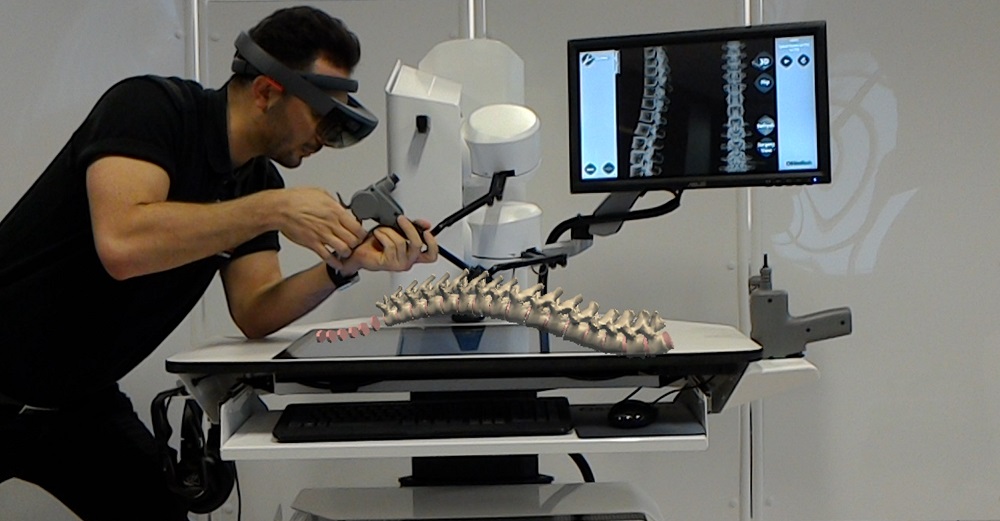
By Shayan Bahadori (Orthopaedic Project Manager) and Mara Catalina Aguilera Canon (Postgraduate Researcher, Faculty of Media and Communication).
In recent years we have seen a decline in theatre operating training time for junior surgeons. Simulators have subsequently been increasingly integrated as training, selection and evaluation tools. To fully formally integrate simulation into orthopaedic training we require evidence that the simulators are valid representations of the operations they seek to replicate. This is one the current research focus at Orthopaedic Research Institute (ORI) and we pursue to validate and develop virtual reality orthopaedic simulators so that they may be adopted into mainstream clinical practice.
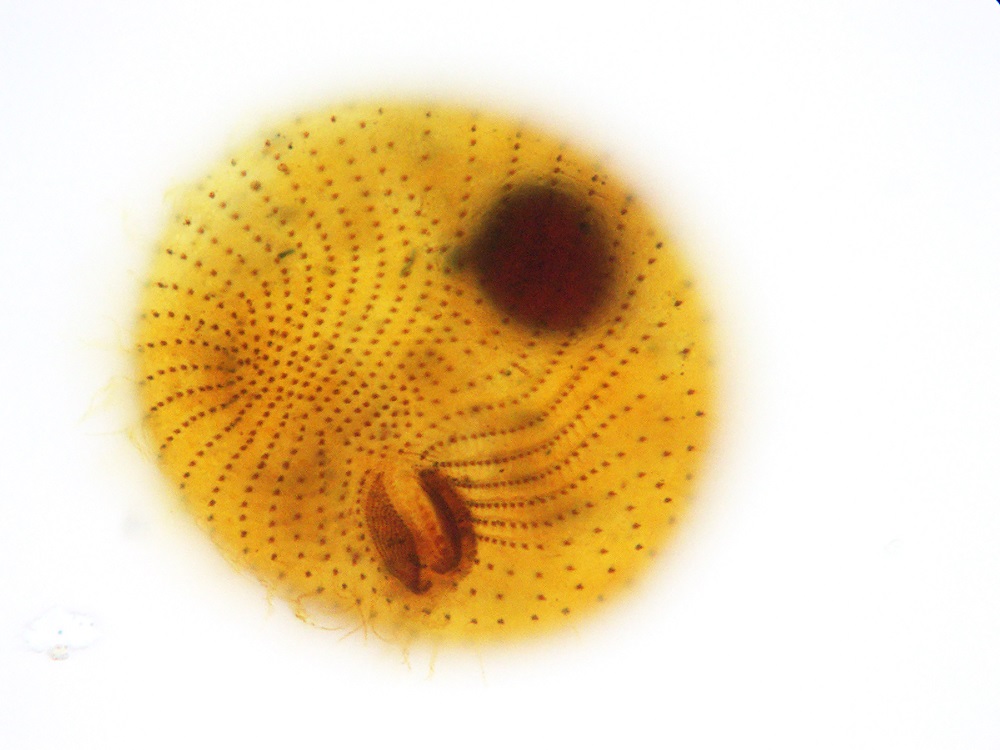
By Hai Luu (Postgraduate student, Faculty of Science and Technology).
Ciliates protozoa are a distinct group of unicellular organisms. They are abundant phagotrophic micro-organisms in soil, playing important role in food webs by controlling the abundance of smaller microbes and recycling organic matter. Ciliates are characterised by some specific traits. Firstly, ciliates are dikaryotic organisms due to having two different cell nuclei; one is responsible for reproduction; the other one carries out cell functions. Secondly, they use cilia for locomotion and feeding. Interestingly, ciliates can reproduce asexually and sexually. From an ecological and functional point of view, ciliates can be used as bioindicators of soil quality – and this is the aim of our research. We are investigating the species richness and abundance of ciliated protozoa in natural and agricultural soils in order to assess their potential as bioindicators of soil quality. Soil quality plays an important role in agricultural production in terms of both quantity and quality, this links closely to quality of human life. This image shows Colpoda cucullus, a terrestrial ciliate commonly found in soils around the world, which was taken as a point of view shot through a microscope.
Research group: Hai Luu, Professor Genoveva Esteban, and Dr Iain Green (Senior Lecturer in Biological Science). Department of Life and Environmental Sciences, Faculty of Science and Technology.

By Dr Nicole Ferdinand (Senior Lecturer in Events Management) and her MSc Events Management student researchers: Diane Nthurima (pictured on the left), Cindy Chen (pictured on the right), Rui Bao, Yi-Hsin Chen, Simona Georgieva, Amelie Lonia, Anh Thu Pham, Taylor Treacy and Sharif Zandani.
The photo is a joint entry by the co-creators of the Carnival U which consists of 10 enthusiastic and one BU academic. Together they are embarking on a journey to create a unique a fusion project. The students are working together with BU academic, Dr Nicole Ferdinand, CEL Learning and Teaching Fellow 2017/18, to create 4 workshops which target other university students interested in Carnival. They will engage in action research as part of the development of their workshops as well as evaluate the overall effectiveness of their co-creation efforts which will form the basis of an academic research paper. The project will also leave an educational legacy for other students wishing to develop event management, marketing and digital literacy skills.
The exhibition will be open until Thursday, 29 March at 2pm, in the Atrium Art Gallery on Talbot Campus. Please do fill in one of our feedback cards in the gallery after visiting the exhibition.
 The awards ceremony for this year’s Research Photography Competition is taking place on Tuesday, 20 March from 1-2pm.
The awards ceremony for this year’s Research Photography Competition is taking place on Tuesday, 20 March from 1-2pm.The winners that you’ve been voting for will be revealed and awarded prizes by Pro Vice-Chancellor for Research and Innovation, Professor John Fletcher.
Come along to the Atrium Art Gallery to see all the photographs in person and find out about the fascinating research behind each one, undertaken by our academics, students across all levels and professional services.
The exhibition is open to all and free to attend so please do come along with colleagues and friends. Nibbles and refreshments will be provided.
Click here to register to attend.
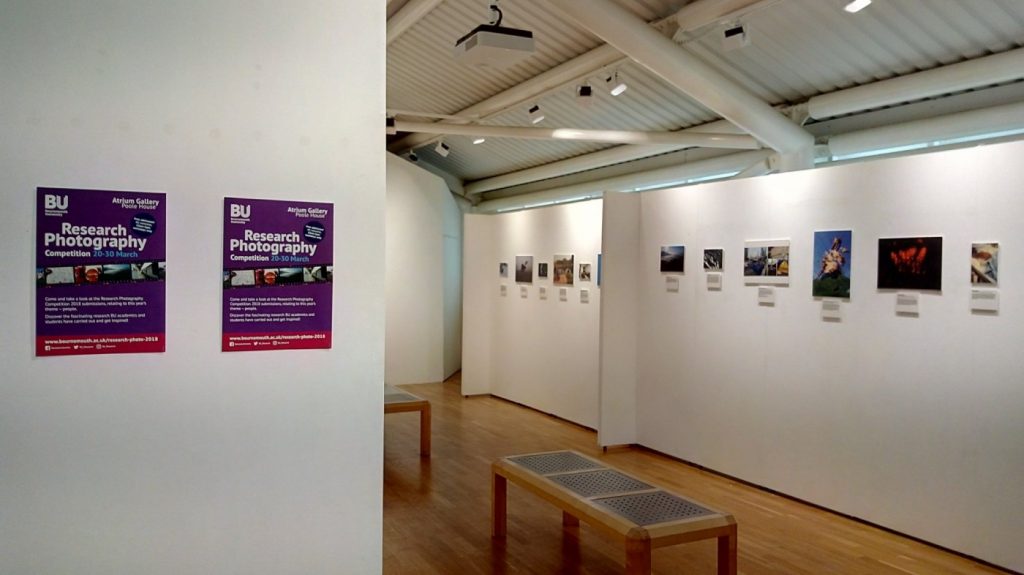
If you’re unable to join us today, the exhibition will be open from 20 March – 29 March (weekdays only) from 10am – 6pm.
Don’t miss out!
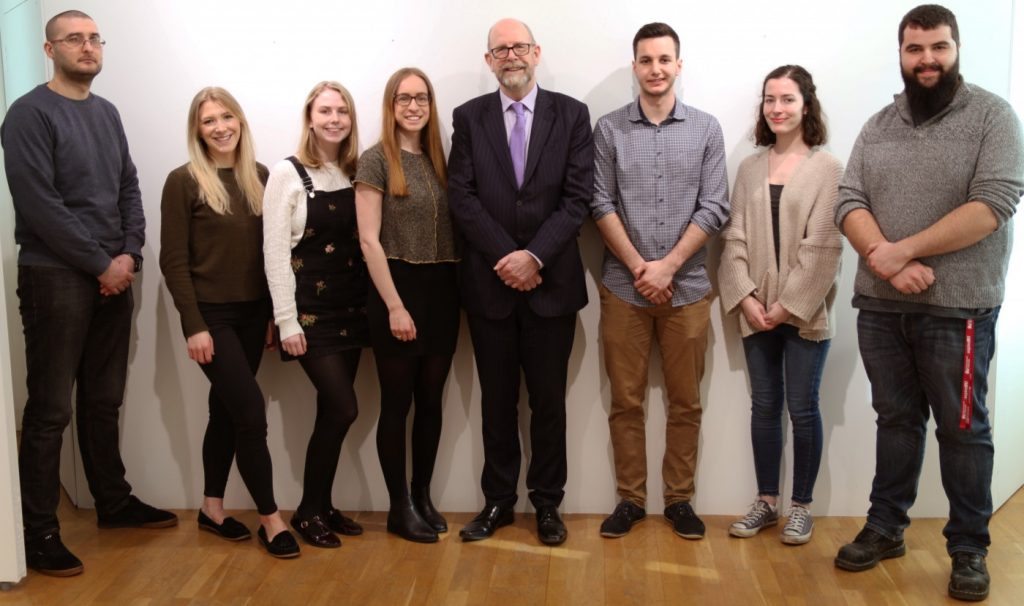
Around 80 students took part in BU’s third annual undergraduate research conference: Showcasing Undergraduate Research Excellence (SURE). The conference is an excellent opportunity for undergraduates and recent graduates to share their work and develop their presentation skills. This year’s contributions reflected the breadth and depth of outstanding undergraduate research taking place across BU.
The conference allows students to present their work to peers, academics staff and attendees from external organisations. As well as demonstrating their academic successes, it enables students to see the real world application of their work and develop potential cross-disciplinary collaborations.
Dr Mary Beth Gouthro, co-chair of the conference, said: “The quality of the undergraduate research underway across all our faculties is testament to the potential of our students, and the professionalism and expertise of the staff that support them. SURE is a great opportunity to celebrate the work of our undergraduates, showcasing their academic progress and provides encouragement into the next steps in their careers.”
As part of SURE, two BU academics shared their own research with the student presenters and conference attendees. Professor of Behavioural Ecology Amanda Korstjens delivered a session on ‘Interdisciplinary approaches to conservation’ encouraging students to look outside their disciplines to build better practice when conserving wildlife and natural habitats. Associate Professor Richard Berger presented progress made into his research on ‘MediaLitRefYouth’, a 2 year EU funded project which seeks to understand the lives of unaccompanied refugee children across Europe. Both of these keynotes provided students the ability to reflect the power and reach of academic research combines with real world applications to help improve lives, for the better.
There were a number of prize winners as part of the conference, including £30 amazon vouchers for best posters, 4 funded spots to participate at BCUR 2018 for one student from each faculty. The overall winner, Andrew Watt, has been offered a Masters fee waiver.
Winner of the prize for best overall contribution, Andrew Watt, commented, “It feels pretty exciting, I didn’t expect it. My presentation was about how fallers and non-fallers in the elderly differ from a bio-mechanical perspective, which is pretty niche. I found the feedback I received from my presentation were positive and it was good practice to have some difficult questions, especially for this next conference.”
“I’ve had several lecturers who weren’t at the conference contacting me to say congratulations. I think my lecturers are just really proud of the physiotherapy students who presented. It’s great that they are so supportive.”
More details about the conference can be found on the SURE 2018 website.
SUBU prizes:
| FM winner | Claudia Wilkin |
| FST winner | David Hurst |
Best poster, demonstration or art installation:
| HSS winner | Thilo Reich |
| FST winner | Stelian Tsekov |
| FM winner | Dan Pryke |
| FMC winner | Kate Edge |
Best original research via oral presentation:
| HSS winner | Andrew Watt |
| FST winner | Isobel Hunt |
| FM winner | Atanas Nikolaev |
| FMC winner | Bethan Stevenson |
Best overall contribution:
| Masters Fee Waiver | Andrew Watt |
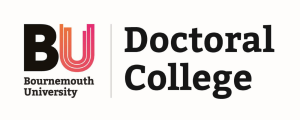
On Wednesday 7 March 2018 the Doctoral College hosted the 10th Annual Postgraduate Research Conference which was a huge success with lots of positive feedback from students and staff alike. We are happy to announce the category winners below. Well done to everyone who took part!
Oral Presentations:
1st Prize Mark Stevens (Advancing a social identity approach to understanding physical activity: preliminary evidence from parkrun, Faculty of Management)
2nd Prize Stephen Allard (The intimate masses: poetry and emerging new concepts of ‘Netiquette’ in online environments, Faculty of Media and Communication)
3rd Prize Louise Oliver (Child-parent-violence and abuse: lifting the veil of secrecy, Faculty of Health and Social Sciences)
Poster Presentations:
1st Prize Giulia Levi (Between silence and agitation – coping strategies and third-party interventions in divided societies: a comparison between post-conflict Bosnia and post-referendum UK, Faculty of Health and Social Sciences)
2nd Prize Amal Musa Almoualed (Saudi women journalists – an exploration of their roles and practices in an age of social media, Faculty of Media and Communication)
3rd Prize Ejike T. Ezeh (Shared decision-making: web-based information tool to support treatment choices of people with advanced pancreatic cancer, Faculty of Health and Social Sciences)
Photography:
Winner Nurist S. Ulfa (The paradox of Muslim girl’s freedom of experimentation in girl games: when the digital virtual consumption practices and the religious norms are predominantly discordant, Faculty of Media and Communication)
We would also like to say a special thank you to the following people for their invaluable contribution to the day.
Opening Remarks
Professor John Fletcher, Pro-Vice-Chancellor for Research & Innovation (Office of the Vice-Chancellor)
Keynote Address
Professor Lee Miles, Professor of Crisis & Disaster Management (Faculty of Management)
Guest Speakers – Deputy Deans for Research & Professional Practice
Professor Vanora Hundley (Faculty of Health and Social Sciences)
Professor Michael Silk (Faculty of Management)
Professor Iain MacRury (Faculty of Media and Communication)
Professor Tiantian Zhang (Faculty of Science and Technology)
PGR Chairs
Clare Gordon (Faculty of Health and Social Sciences)
Sara Glithro (Faculty of Health and Social Sciences)
Ella Onyinye Ejime (Faculty of Management)
Duncan Ki-Aries (Faculty of Science and Technology)
Judging Panel – Oral Presentations
Professor Alison McConnell (Faculty of Health and Social Sciences)
Dr Sue Way (Faculty of Health and Social Sciences)
Dr Vanessa Heaslip (Faculty of Health and Social Sciences)
Professor Adam Blake (Faculty of Management)
Dr Daniel Lock (Faculty of Management)
Dr Einar Thorsen (Faculty of Media and Communication)
Professor Marcin Budka (Faculty of Science and Technology)
Judging Panel – Poster and Photography Exhibition
Jane Healy (Faculty of Health and Social Sciences)
Professor George Filis (Faculty of Management)
Professor Candida Yates (Faculty of Media and Communication)
Dr Christos Gatzidis (Faculty of Science and Technology)
We would like to invite you to the latest research seminar of the Centre for Games and Music Technology Research.
Title: Subjective Evaluation of High-Fidelity Virtual Environments for Driving Simulations
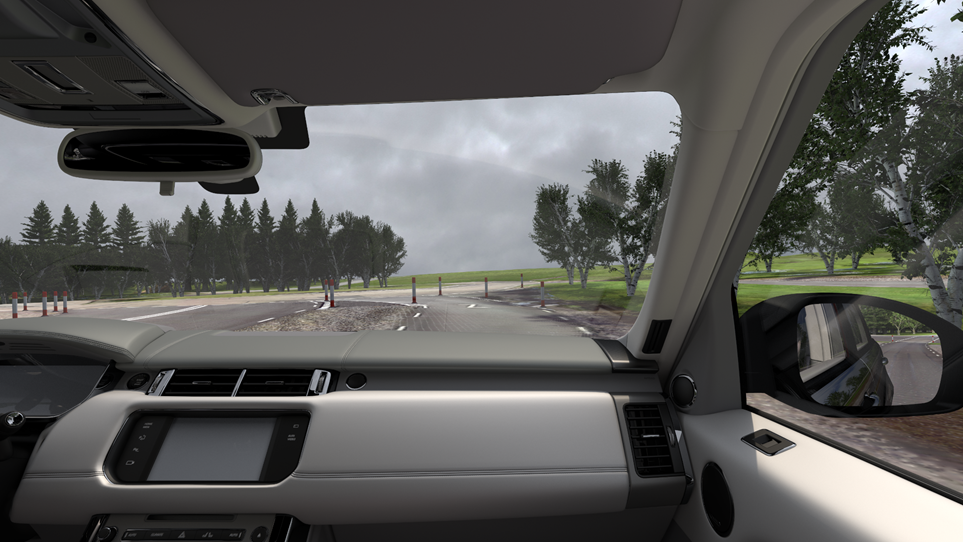
Speaker: Dr Carlo Harvey
Birmingham City University
Time: 2:00PM-3:00PM
Date: Wednesday 14 March 2018
Room: PG10 (Poole House)
Abstract:
Virtual environments (VEs) grant the ability to experience real-world scenarios, such as driving, in a virtual, safe, and reproducible context. However, to achieve their full potential, the fidelity of the VEs must provide confidence that it replicates the perception of the real-world experience. The computational cost of simulating real-world visuals accurately means that compromises to the fidelity of the visuals must be made. This talk presents a subjective evaluation of driving in a VE at different quality settings. Participants (n = 44) were driven around in the real world and in a purposely built representative VE and the fidelity of the graphics and overall experience at low-, medium-, and high-visual settings were analysed. Low quality corresponds to the illumination in many current traditional simulators, medium to a higher quality using accurate shadows and reflections, and high to the quality experienced in modern movies and simulations that require hours of computation. Results demonstrate that graphics quality affects the perceived fidelity of the visuals and the overall experience. When judging the overall experience, participants could tell the difference between the lower quality graphics and the rest but did not significantly discriminate between the medium and higher graphical settings. This indicates that future driving simulators should improve the quality, but once the equivalent of the presented medium quality is reached, they may not need to do so significantly.
We hope to see you there.
Georgina was encouraged to apply by her lecturer, Dr Rosie Read, who informed the entire class to participate in the SURE conference. “Initially, the word abstract scared me a bit because I would have to condense my work into a few lines but after further discussion with my family, I decided to go for it.”
Her assignment research looks at the underlying problem of food poverty within modern British society which was carried out within a foodbank in Bournemouth, working among the volunteers. “Having grown up in a volunteering culture, it has become for me a way of life,” says Georgina. “More specifically, my interest in the foodbank area was sparked by one of my course units I studied last semester where we were sent into the Bournemouth foodbanks to research the personal reasons behind the seemingly household phenomenon of volunteering.”
“I do believe that SURE is a good way to showcase our work as we, as students, have been given the opportunity for various academics and other students to see our work and receive unbiased feedback, which will help us to improve for the future. It also gives us a place to highlight real world issues.”
“I hope to use this exposure from SURE to improve my self-confidence and assertiveness in public speaking which would be an asset to me as I continue with my university studies and eventually into the world of research,” she says. “Most students would perhaps only get to publish their work or experience this type of exposure if they continued to a Master’s programme.”
The Showcasing Undergraduate Research Excellence conference will taking place on 7 March 2018. Many undergraduate students from across the university will be presenting their research throughout the conference in a variety of different ways, from presentations to posters and art installations. Please register via the Eventbrite page if you would like to attend.
For more details, visit the SURE website or email the SURE team.
“SURE was first mentioned to me by my dissertation tutor and I thought to myself ‘What have I got to lose?’.” Scott’s dissertation research looks at the relationship between stammering and sports participation. “Having a stammer myself and a passion for sport, it seemed like the obvious choice to undertake this research,” he says.
“I spent my placement year at a preparatory school where I chose to deliver a school assembly about stammering, how to manage it and how to react to those who have one. It was very well received from pupils, teachers and parents which also inspired me to conduct further research into the area.”
“Now that I have gained control of my speech through years of work with the McGuire programme, I want to help children who are currently experiencing the same feelings that I felt at their age. I am keen to share my work with other academics and students at SURE, particularly because there appears to be a lack of knowledge and research about stammering in the sporting context, and I feel it is vital to improving the wellbeing of those who stammer.”
“SURE is my first opportunity to present my work in an academic environment. Plus, I thought it would be nice to achieve something like this before I leave university! The workshops before the event have helped with what needs to be included and how to set my work out for the audience to understand. Also, the McGuire Programme has taught me how to enjoy public speaking so I am looking forward to the event!”
The Showcasing Undergraduate Research Excellence conference will taking place on 7 March 2018. Many undergraduate students from across the university will be presenting their research throughout the conference in a variety of different ways, from presentations to posters and art installations. Please register via the Eventbrite page if you would like to attend.
For more details, visit the SURE website or email the SURE team.
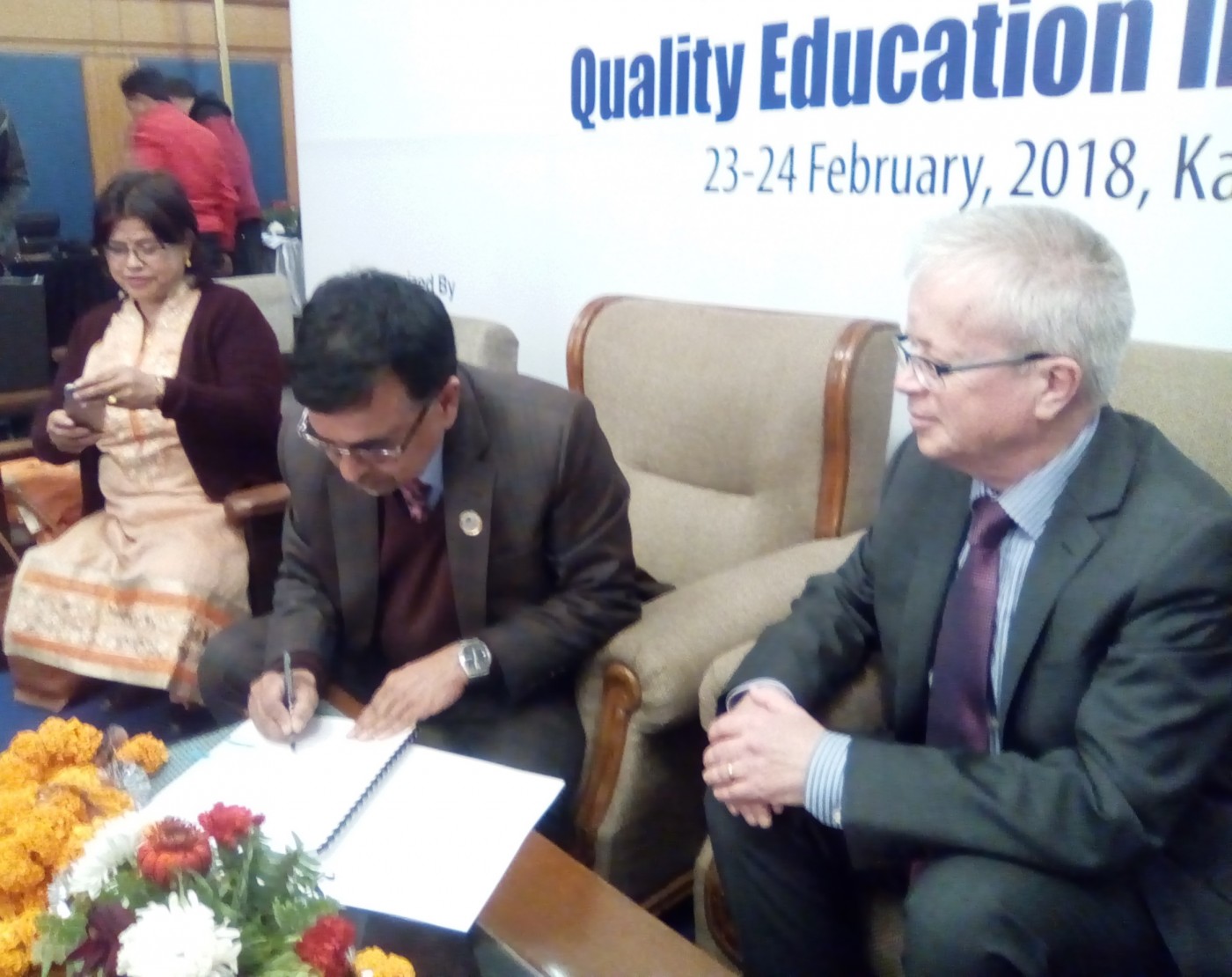 This weekend Manmohan Memorial Institute of Health Sciences (MMIHS) in Kathmandu, Nepal signed a Memorandum of Agreement (MoA) with Bournemouth University (BU).
This weekend Manmohan Memorial Institute of Health Sciences (MMIHS) in Kathmandu, Nepal signed a Memorandum of Agreement (MoA) with Bournemouth University (BU).  The ceremonial signing took place on the final day (24th Feb.) of the International Conference on Quality Education in Federal Nepal. Prof. Stephen Tee, who also spoke at the conference, represented our university.
The ceremonial signing took place on the final day (24th Feb.) of the International Conference on Quality Education in Federal Nepal. Prof. Stephen Tee, who also spoke at the conference, represented our university.
 The UoA formalises a long-standing collaboration between the two institutions. MMIHS and BU academics have jointly applied for research grants, conducted collaborative research and published together. Several BU staff [1-3] and students [4] in the Faculty of Health & Social Sciences have published in the Journal of Manmohan Memorial Institute of Health Sciences, an Open Access journal. Moreover, Prof. Edwin van Teijlingen in the Centre for Midwifery, Maternal and Perinatal Health has been a Visiting Professor at MMIHS for nearly a decade and has given several guest lectures over the years to staff and students at MMIHS.
The UoA formalises a long-standing collaboration between the two institutions. MMIHS and BU academics have jointly applied for research grants, conducted collaborative research and published together. Several BU staff [1-3] and students [4] in the Faculty of Health & Social Sciences have published in the Journal of Manmohan Memorial Institute of Health Sciences, an Open Access journal. Moreover, Prof. Edwin van Teijlingen in the Centre for Midwifery, Maternal and Perinatal Health has been a Visiting Professor at MMIHS for nearly a decade and has given several guest lectures over the years to staff and students at MMIHS.
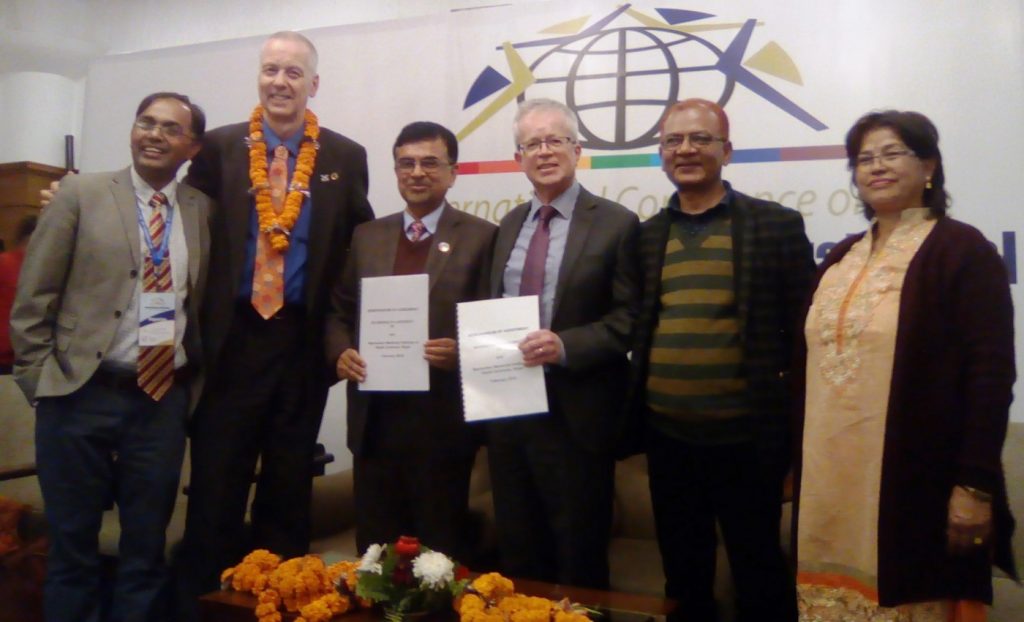
References:
“I was inspired to submit an abstract to SURE as it looked like a great opportunity to showcase my research and also to develop my public speaking and communication skills,” says Abigail.
Her research explores the representation of refugee in contemporary documentary and current affairs reporting. “I have always followed the refugee crisis in the news. It is an incredibly important issue within humanity today, which is often not helped by negative media representation of the refugees themselves.”
Abigail was inspired by the BBC 2 series Exodus: Our Journey to Europe, “After watching this TV series, I knew that I had to use it as a case study,” she says. “I wanted to explore the key reoccurring representational themes within contemporary documentary and current affairs broadcasts which highlight the refugee crisis. This series offers new modes of documentary filmmaking which challenge the existing perceptions of refugees.”
“Overall, I think SURE is a great way to showcase work, especially to a wide variety of people. SURE offers students a chance to discuss their research with people outside of their faculty or programme, which is perhaps an opportunity we would not normally have.”
The Showcasing Undergraduate Research Excellence conference will taking place on 7 March 2018. Many undergraduate students from across the university will be presenting their research throughout the conference in a variety of different ways, from presentations to posters and art installations. Please register via the Eventbrite page if you would like to attend.
For more details, visit the SURE website or email the SURE team.
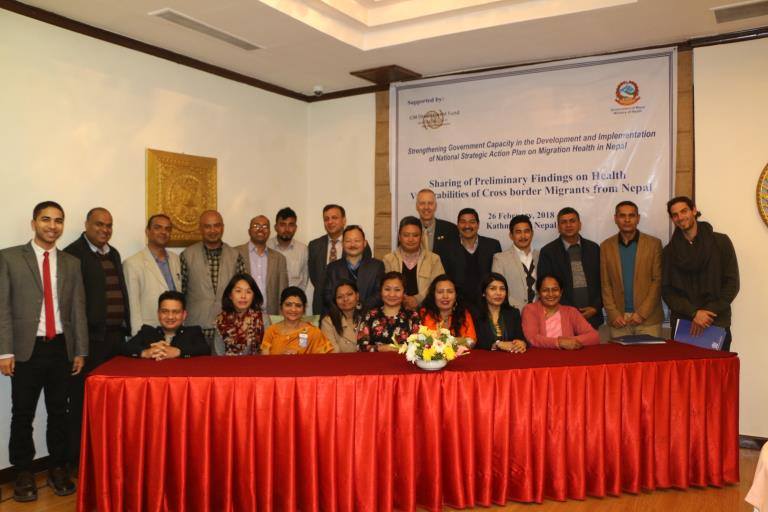
Yesterday (Monday 26th February) we disseminated the preliminary findings of our study on ‘Health vulnerabilities of cross border migrants from Nepal.’ The study was funded by IOM (International Organisation for Migration) in Kathmandu. The main findings were outlined one of the researchers from Green Tara Nepal.

The study was conducted in Nepal by Nepali researchers Drs. Pratik Adhikary, Nirmal Aryal and Raja Ram Dhungana, with methodological support from Prof. Padam Simkhada (Liverpool John Moores University) and BU’s Prof. Edwin van Teijlingen. The mixed-methods study included a cross-sectional study of 752 Nepali migrant workers who had returned from working in India as well as focus groups and interviews with a sub-sample of returnees and interviews with two key informants. The research team also highlighted some key issues raised in two recent migration and health papers co-authored by some of the contributors to the dissemination event [1-2].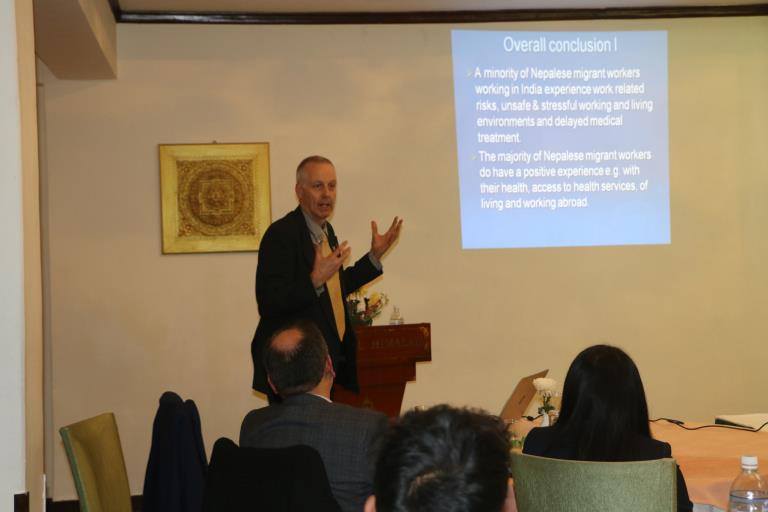
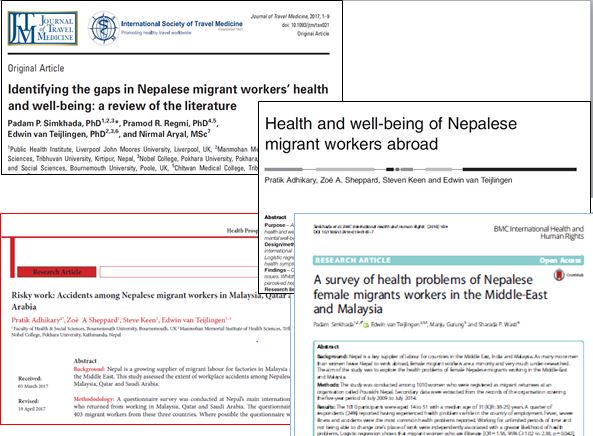
The project has strong link with Bournemouth University, Prof. Simkhada is Visiting Professor in BU’s Faculty of Health & Social Sciences (FHSS), Dr. Pratik Adhikary is a BU Ph.D. graduate and Dr. Nirmal Aryal has just been appointed in FHSS as a Post-Doctoral Researcher in preparation for REF 2021.
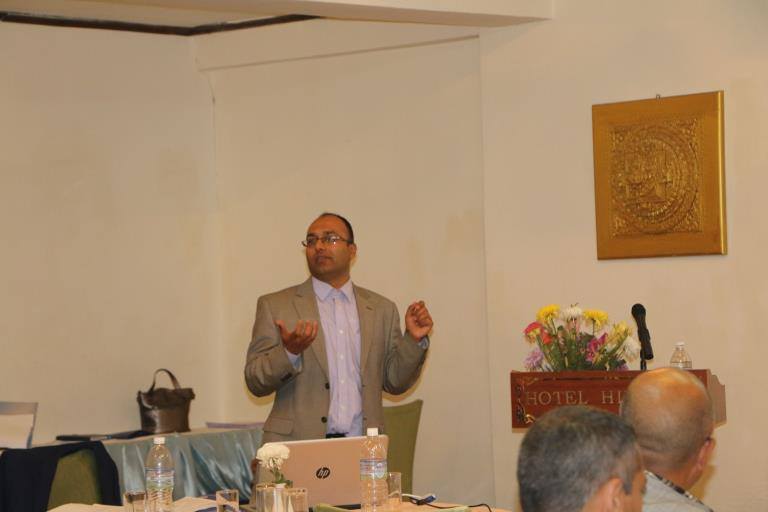
References:
Bournemouth University leads the Kosovo-strand of a major four-year AHRC ‘Global Challenges’ project titled ‘Changing the Story‘. This project aims at supporting the building of inclusive civil societies (CSOs) with, and for, young people in five post-conflict countries. It asks how the arts, heritage, and human rights education can support youth-centred approaches to civil society building in Cambodia, Colombia, Kosovo, Rwanda and South Africa. The Kosovo strand benefits from an established track record of collaboration with University of Prishtina (Co-I) and Stacion: Centre for Contemporary Arts in Prishtina as well as several arts-based civil society organisations in the country. The BU-led strand focuses on formal and informal civic education through the arts in Kosovo, to be explored locally by a Postgraduate Research Assistant, attached to University of Prishtina, through a critical review and proof of concept exercise during the first year. In support, BU is contributing a fully-funded PhD scholarship under the title ‘Imagining New Futures: Engaging Young People Through Participatory Arts in Post-Conflict Kosovo‘, which is currently being advertised.
International collaborative activities commenced last week in collaboration with an internationally-acclaimed CSO partner in Dorset, devoted to developing global youth citizenship through culture and the arts. The award-winning Complete Freedom of Truth project (TCFT), with which BU collaborated already previously, kindly offered a one-week residency to Albert Heta, Director of Stacion: Centre for Contemporary Arts in Prishtina. This residency brought together a group of artists, workshop leaders and young people from across the UK between February 12 and 16 in Bridport. Albert’s visit from Kosovo was funded by the AHRC and facilitated by BU’s new Research Centre ‘Seldom Heard-Voices: Marginalisation and Society Integration’ of the Faculty of Health and Social Sciences (FHSS). Together with Albert, some of the Centre’s members also participates in the events organised by TCFT, exchanged experiences and discussed best practice of working with young people of various background through the arts towards social justice. TCFT has a long history of working with young people, internationally, starting in post-conflict Srebrenica in 2008. Based on our observations during one week in Dorset, including of the issues selected as important by the young UK-participants during this period, we are currently reflecting on the extent to, and ways in, which arts-based interventions with a given set of young people in one specific socio-cultural context and its underpinning conceptualisations (such as of empowerment or vulnerability of, and pressures on, young people) can or cannot be transferred to another, such as that in which young people in Kosovo negotiate their aspirations.
Stephanie Schwandner-Sievers
sssievers@bournemouth.ac.uk
Photo credit below: Robert Golden
Kosovo strand activities begin via a global youth citizenship project